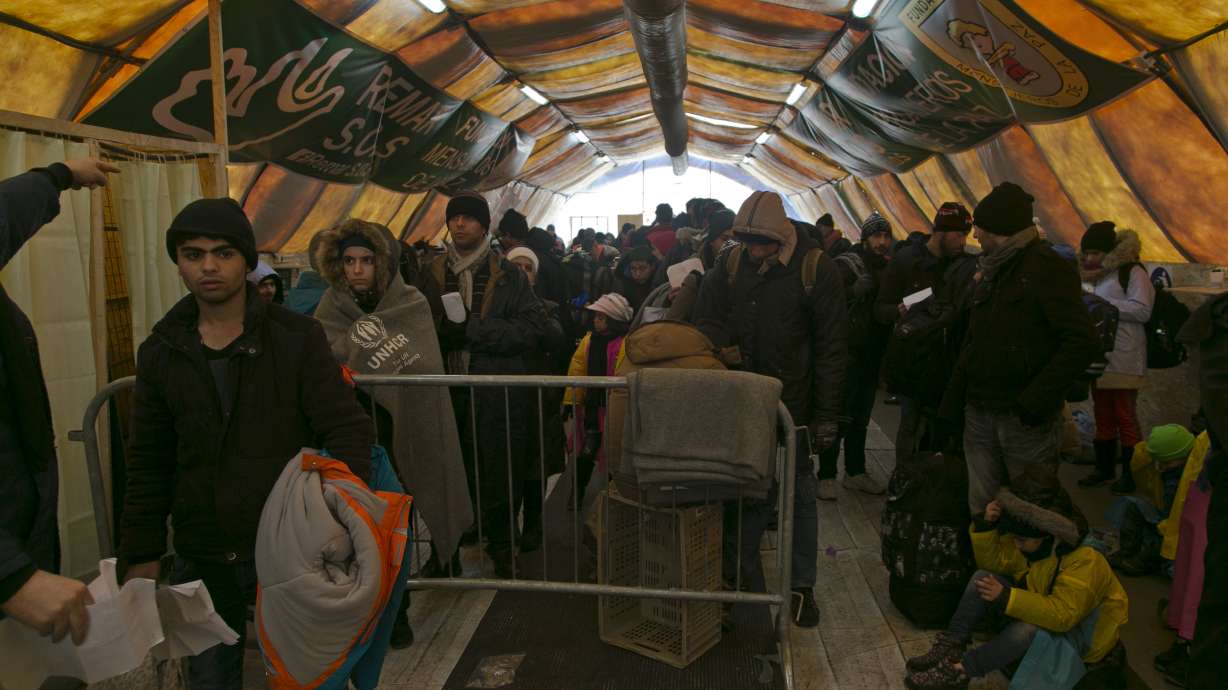Estimated read time: 2-3 minutes
This archived news story is available only for your personal, non-commercial use. Information in the story may be outdated or superseded by additional information. Reading or replaying the story in its archived form does not constitute a republication of the story.
BERLIN (AP) — The head of the International Organization for Migration said Sunday that Europe must avoid viewing migrants as a "security threat" following the New Year's Eve assaults in Cologne and November's attacks in Paris.
William Lacy Swing was in Berlin at a time when Chancellor Angela Merkel faces mounting pressure over her open-door policy toward refugees. Germany registered nearly 1.1 million people as asylum seekers last year but most other European Union countries remain reluctant to take significant numbers.
Swing told The Associated Press that Merkel and Germans in general deserve "a lot of praise and credit" for taking in large numbers of refugees, "and I think one should not let the terrible incident that happened in Cologne mar what is a very good approach to the issue."
The events in Cologne — a string of robberies and sexual assaults — were blamed largely on foreigners, and some suspects are asylum seekers. The Paris attacks in November already had fueled anti-immigrant sentiment in Europe.
"We don't want now, because of what happened in Paris and what happened in Cologne, suddenly to link refugees who are fleeing terrorism ... with some kind of security threat," Swing said.
"We have to find a way, and I know Germany's really trying to do that now, how do we give the compelling argument to our people that, historically, migration has always been a very positive force in the lives of countries?" he said. Swing, a longtime U.S. diplomat, noted that "my own country was built on the backs of migrants, and with the talent and brains of migrants."
The IOM says that 23,664 migrants arrived in Europe by sea in this year's first two weeks — all but 362 of them in Greece.
Last year, just over 1 million arrived. The asylum-seekers registered in Germany included large numbers of people from the Balkans.
Copyright © The Associated Press. All rights reserved. This material may not be published, broadcast, rewritten or redistributed.









